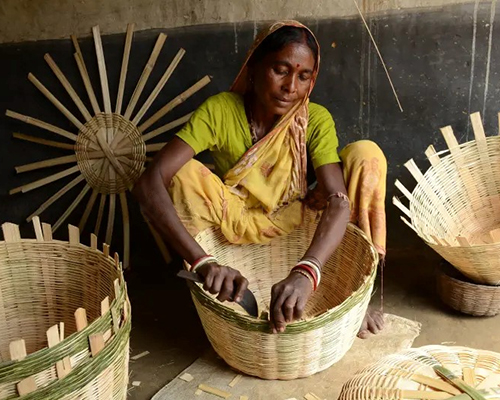What We Do For Sustainable Livelihood and TVET
Vision Bangladesh Health and Education Society (VBHES) is deeply committed to fostering sustainable livelihoods through innovative Technical and Vocational Education and Training (TVET) programs. We equip vulnerable individuals—particularly women, youth, smallholder farmers, and marginalized communities—with practical, market-driven skills and resources to secure meaningful employment, boost economic well-being, and build long-term resilience. Operating in climate-vulnerable regions like Bagerhat, Cox’s Bazar, Dhaka, and Sylhet, our initiatives integrate social entrepreneurship, environmental sustainability, and community-driven approaches to break cycles of poverty. By aligning with Bangladesh's Vision 2041 and SDGs (e.g., SDG 1: No Poverty, SDG 2: Zero Hunger, SDG 8: Decent Work), we promote entrepreneurship, develop robust market linkages, enhance workforce readiness, and support inclusive economic growth for a brighter, self-reliant future.
Our key initiatives include:
• Promoting Food Security through Agricultural Innovation: We train farmers in climate-smart practices such as salt-tolerant crops (e.g., tilapia, golda prawn), rainwater harvesting, soil health management, crop diversification, and drought-resistant techniques. we reached approximately 15,000 farmers, resulting in a 20% increase in yields and improved food availability for over 50 smallholder households per community, despite erratic weather patterns.
• Establishing Sustainable Agriculture Value Chains: By linking producers to markets through cooperatives, e-commerce platforms, and value-added product development (e.g., processed organic goods), we connected around 2,000 marginalized farmers to local and online buyers. This has boosted revenue, reduced dependency on middlemen, and created economic stability, with 72% of participants reporting increased household income.
• Developing Environment-Friendly Entrepreneurship: We support eco-friendly start-ups focused on green technologies, renewable energy, and sustainable agro-processing. We empowered over 1,000 women and youth-led ventures with business planning, access to microfinance, and mentorship programs, fostering innovation and environmental conservation while generating community-level jobs.
• Offering Technical and Vocational Education and Training (TVET): Tailored for women and youth, our TVET programs provide hands-on training in high-demand trades like ICT (web development, cybersecurity), tailoring, carpentry, and digital entrepreneurship. Through partnerships with NeuraTech Ltd., we trained about 2,000 youth, achieving a 75% employment rate, and expanded to 600 trainees in digital skills, enabling freelance opportunities and online marketing for agro-produces.
• Implementing Resilience Agriculture and Disaster Risk Reduction (DRR): In emerging areas prone to floods and salinity, we promote adaptive farming and provide DRR training to 500 individuals, including early warning systems and flood-resistant infrastructure. This integrates with clean energy solutions, such as solar-powered irrigation, to sustain livelihoods amid climate challenges.
• Supporting School Feeding and Green Food Assistance: For refugees and host communities, we deliver nutritious meals and e-vouchers, benefiting thousands while linking to homestead gardening and livestock rearing for nutritional security.
These efforts have transformed lives, we empowered over 100,000 beneficiaries, reducing poverty through diversified income sources and resilient practices. For instance, TVET graduates have launched micro-enterprises, while agricultural trainees have adopted salt-tolerant varieties to maintain productivity. Our holistic approach incorporates psychological support, like mindfulness sessions inspired by resilience metaphors, to help participants cope with climate stress and build optimism.
